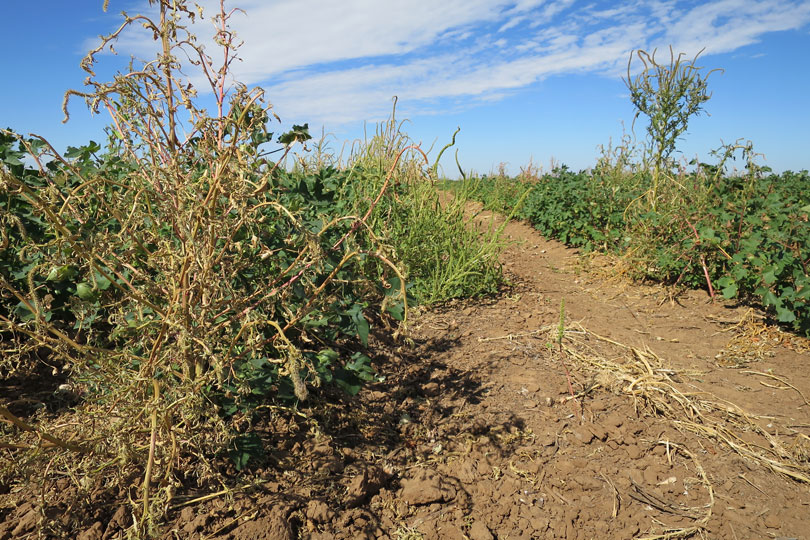By Justin Walker
Communications Specialist
A newly developed fertilizer system could be just what farmers worldwide need to grow cotton while battling herbicide-resistant weeds.
According to a Texas A&M AgriLife Research study, the new system will offer nutrition to engineered cotton crops and a deadly dose to weeds.
The fertilizer system will apply phosphite to cotton crops engineered to process nutrients from the phosphite as the same compound overwhelms weeds that are unable to utilize it, researchers said.
“Our researchers here at Texas A&M AgriLife have addressed an issue that costs producers billions of dollars,” Dr. Patrick Stover, vice chancellor of Agriculture and Life Sciences at Texas A&M University and AgriLife Research acting director, said. “This is an economical, environmentally safe and sustainable solution.”
Stover said weeds have been evolving at a faster rate than the chemicals and other methods used to control them, and that this discovery will help researchers get ahead of the issue.
“We believe the ptxD/phosphite system we have developed is one of the most promising technologies of recent times that can help solve many of the biotechnological, agricultural and environmental problems we encounter,” Dr. Keerti Rathore, an AgriLife Research plant biotechnologist, said.
Rathore said all living beings require phosphorous, but that most organisms can only process phosphorus in the form of orthophosphate.
“We have determined ptxD-expressing cotton plants can utilize phosphite as a sole source of phosphorus while weeds cannot, thus making it effective at suppressing weed growth,” he said.
The research focuses on two of the top three concerns for cotton farmers—weed’s herbicide resistance and weed control. These two issues are trumped only by input costs.
There are typically only three ways to manage weeds—manually, mechanically or chemically. Chemical control options have dwindled over the years as weeds became more resistant to herbicides.
“Over the years, it has become abundantly clear that new strategies are needed for weed control to sustain agriculture production while reducing our dependence on herbicides,” Dr. Priscila Estrella-Hernandez, a researcher at StelaGenomics Inc. who worked on the international research team with Rathore, said. “There is an urgent need for alternative weed suppression systems to sustain crop productivity, while reducing our dependence on herbicides and tillage.”
Click here for more information on the study. To read the study in full, click here.

